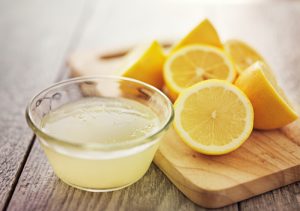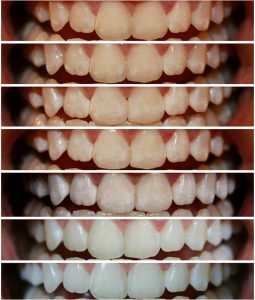Lemon for teeth whitening? Really? You may have pulled some Google results to find that lemon can be used as a way to whiten teeth.
No doubt, having white teeth is one of the best ways to feel beautiful and self-confident. And there’s no better way to get white teeth than paying a visit to the dentist or using an American Dental Association-approved teeth whitening product because they’re fast and effective.
One trend in natural teeth whitening involves applying lemon juice or lemon peel to your teeth. But is lemon whitening really that simple?
Here we’ll answer all of your lemon teeth whitening questions including:
- Is lemon teeth whitening safe?
- Is it effective?
- Should you do it?
Let’s get started!
In This Article
What is lemon teeth whitening?
Teeth whitening is the act of bleaching your teeth to make them lighter. Therefore, lemon teeth whitening is simply the use of lemon juice or peel to whiten your teeth.
You’re probably more familiar with traditional teeth whitening, which uses ingredients like peroxide to whiten teeth, and using lemons isn’t that different conceptually.
Lemons contain citric acid, which is known as a natural bleaching agent on fabrics, and even hair and skin. Citric acid, when applied to teeth, can lift stains and lighten teeth. However, just because it works as a bleaching agent doesn’t mean it’s the top solution for your teeth.
Is whitening teeth with lemon safe?
Lemon is a natural product, but that doesn’t mean it’s safe for your teeth. Lemon is highly acidic and has a low pH of 2.3, and acidic food and drink can cause enamel erosion over time. In short, it may whiten your teeth but you run the risk of wearing down the enamel that protects your teeth.
In fact, a 2015 study showed that lemon juice specifically led to tooth erosion of the enamel and inner dentin.

So, if you use lemon as a teeth whitener too much or too frequently, it can make the outer layer of your enamel wear out, increasing the possibility of tooth sensitivity and tooth decay.
It’s no surprise that dentists advise against using lemon for stain removal or teeth whitening. If you’re really interested in trying it out, don’t do it more than two times a week, and consider talking to your dentist first.
How to use lemon peel for teeth whitening
If you’ve decided to take leap and try lemon whitening, here’s how you can use the lemon peel:
- Peel a lemon carefully. You may want to cut the peel into smaller pieces that can fit inside your mouth.
- Gently rub the outside of the lemon peel on your teeth. Take care to only touch the teeth and not the gums.
- You may start to notice subtle results right away.
How to use lemon juice for teeth whitening

Lemon peel works well, but lemon juice also whitens teeth. The process is fairly straightforward. Cut a lemon in half and squeeze the juice into a cup. Dilute the lemon juice with an equal amount of water. Rinse your mouth with the lemon juice solution.
Does lemon teeth whitening really work?
It does, but it could take a while to see results. Don’t expect to get the same results that you see when you get professional whitening or use ADA-approved teeth whitening strips. If you want to see noticeable results in a short amount of time, you have to use lemon consistently, which isn’t good for your teeth.
For people who wear dentures, lemon could be a good at-home treatment for recent stains. It’s not recommended for bonded teeth.
Natural teeth whitening alternatives
If you’re looking for a natural alternative to professional teeth whitening or at-home kits, there are better solutions than using enamel-eroding lemon juice. Baking soda, for example, is a known whitening agent that also helps remove plaque.
You can create a simple paste of baking soda and water (2 parts water to 1 part baking soda), which can help get rid of some of those extrinsic (external) stains. It won’t work as well on intrinsic staining, which affects the inside of the teeth.
An even more effective solution is using a natural toothpaste, and if you see toothpastes that have a mix of baking soda and peroxide, that’s even better for teeth whitening.
Other natural alternatives include oil pulling (using coconut oil) or using activated charcoal. There’s even a TikTok trend using banana peels – but don’t hold out hope for that one.
Note that activated charcoal can be abrasive on your teeth and there hasn’t been much scientific research on its effectiveness. However, charcoal has been used since ancient times for water purification, wound healing, and more.
Conclusion
In a nutshell, lemon is a cheap and natural teeth whitening remedy. However, it can do more harm than good if you use it too frequently. If you insist on trying this trend, don’t use lemon more than twice a week, avoid prolonged contact with your gums, and consider talking to your dentist before getting started.
PubMed: Influence of Various Acidic Beverages on Tooth Erosion. Evaluation by a New Method. Referenced 1 November 2021.




